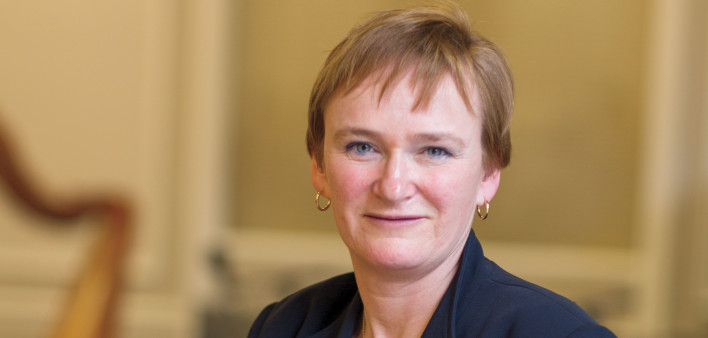I thought I was cured. Eight years of remission after Stage III colorectal cancer. I went back to work, did a daily fitness routine and happily traveled.
But in 2017, a pelvic recurrence went undetected by a distracted radiologist, and the result was devastating. The tumor was 2 centimeters when it was missed but 9 centimeters when it was finally revealed. What followed was months of brutal chemo infusions, a major debulking surgery, debilitating complications and more chemo. Sadly, during surgery, cancer cells were found deep in my pelvic sidewall—a condition that is inoperable and invariably fatal.
So I do not know how long I have. But I am determined to continue on as a patient advocate for as long as I am given.
In 2010, I was diagnosed very late because of gross medical error—none of the four doctors I saw, including a general surgeon, believed someone under 50 could get colorectal cancer. Ultimately, they were disciplined for egregious negligence.
Once I entered treatment, I was horrified to learn that my province did not authorize the best-practice regimen for my cancer, the combination chemotherapy infusion known as FOLFOX. Instead, I was given the oral chemotherapy Xeloda (capecitabine). My community and I lobbied to extend the formulary to cover FOLFOX. We were successful, but it was too late for me. However, I am proud to say our advocacy helped over 1,000 Nova Scotians access the best chance for a cure.
I recounted the story of my fight for survival and medical justice in my book, The Cancer Olympics, which I am chuffed to say has won more than seven literary awards.
My experience gave me the advocacy bug. I have served on several professional working groups aimed at improving cancer care, produced informational videos, joined Patients for Patient Safety Canada, done fundraising and generally raised hell on Twitter about the need for the patient’s voice in health care. In one of my proudest moments, the governor general of Canada decorated me with a medal for these efforts.
When my cancer returned, my light dimmed, but it did not go out. I recently gave a talk to national health care leaders and shared my story about having a surgery canceled because a hospital fax machine ran out of ink; as a result, some hospitals are now replacing their obsolete and unreliable fax machines. Every day, I do something to combat cancer—support a survivor, write an article, do a speaking engagement. I fight for my vision of a world in which providers and patients engage with one another to advance our common cause.
People ask why I do it. “Shouldn’t you be resting?” they query. I do it because it gives meaning to my suffering and death. I want no one else to undergo what I have. Even one saved patient, even one enlightened doctor is worth it.
Cancer may take me out, but I will go down swinging.







Comments
Comments